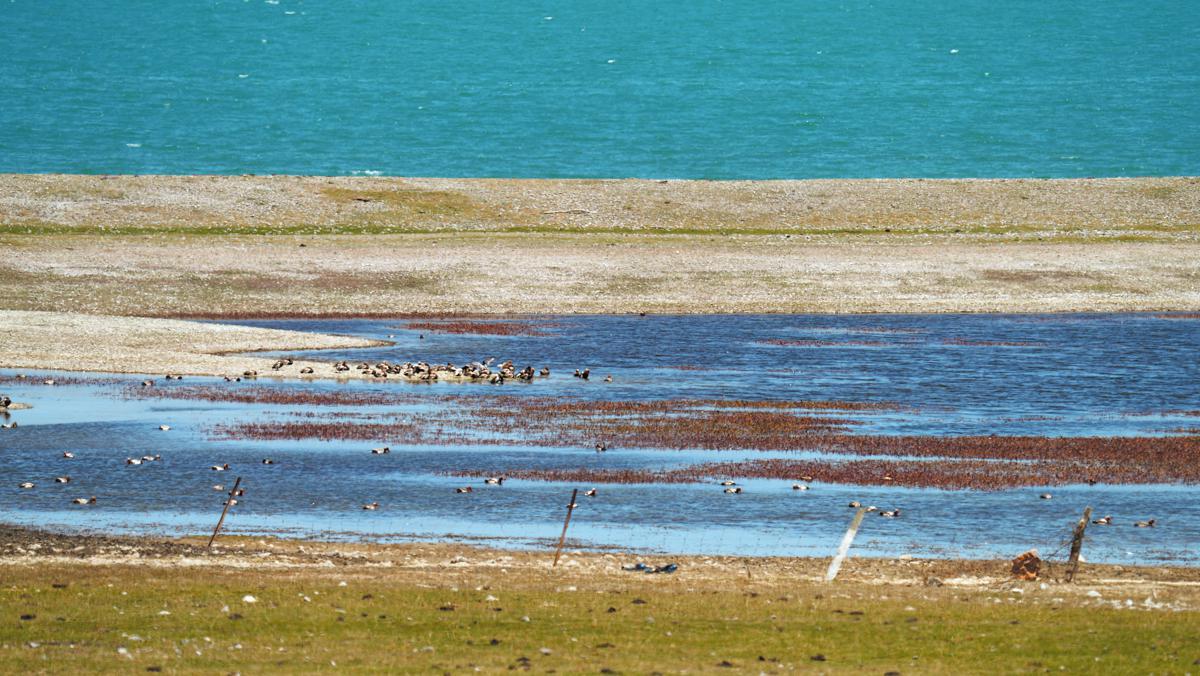Bird race becomes learning opportunity
Event around Qinghai Lake showcases biodiversity and conservation efforts


On the afternoon of May 27, in a meeting room at a hotel in Gangca county, Qinghai province, Lei Jinyu was preparing a Power-Point presentation on his laptop, feeling a bit nervous.
As the secretary-general of the Rosefinch Center, a nonprofit organization dedicated to promoting bird-watching and bird conservation, Lei had given numerous speeches about his work and passion. "But I'd never done it for an audience of Tibetan herders," he told China Daily. "I was not sure if they would fully understand my Mandarin. Maybe I needed to use simpler words?"
However, once all the participants arrived, Lei realized he had worried too much and felt relieved. Although his listeners were Tibetan, most of them were not herders but female tour guides from two of the county's scenic areas, all fluent in Mandarin. Only two male participants were actually herders, but they had no difficulty understanding his words.
Over the next hour and a half, Lei introduced his audience to bird-watching, including its history, its growing popularity in China, and details about dozens of common birds found around Qinghai Lake — the country's largest lake — located near Gangca.
"I finally know the Mandarin names of some birds I am quite familiar with, such as heijing he (black-necked crane), bantou yan (bar-headed goose) and gaoshan wujiu (Himalayan vulture)," said Sebon Gya, a 32-year-old herder from Yehormao village and a part-time patrolman in the village on the northern bank of the lake.
Sebon Gya, whose primary responsibility is identifying potential threats to the village's grasslands, such as fire hazards or damaged fencing, also monitors wildlife around the village. "Rabbits and pikas (small egg-shaped mammals) are common, and wolves and foxes appear from time to time," he said. "Now I understand that Qinghai Lake is an important habitat for many water birds."
Tsesang Je, 23, has been working with the Hargai Town Przewalski's Gazelle Science Education Base in the county for just under a year. While her main job is guiding tourists to observe Przewalski's gazelles, an endangered species under the State's first-level protection, she occasionally faces questions about the area's birds.
"After the lecture, I can provide better answers to our customers," she said.
"Many water birds live in the grasslands near our base. I will suggest to our managers that we add more content about the birds to our guided tours."
The lecture was actually a side program for a bird-watching and educational event, "Beautiful Qinghai, Bird-watching at the Great Lake". Held from May 25 to 29 around Qinghai Lake, the event was organized by the Qinghai Lake Scenic Area Protection and Management Administration and the Qinghai Provincial Forestry and Grassland Bureau, with co-organizers including the Qinghai Lake National Nature Reserve Administration and the China Bird Watching Organizations' Joint Action Platform (Rosefinch Center).
























